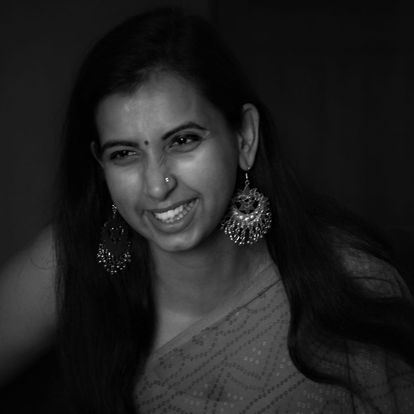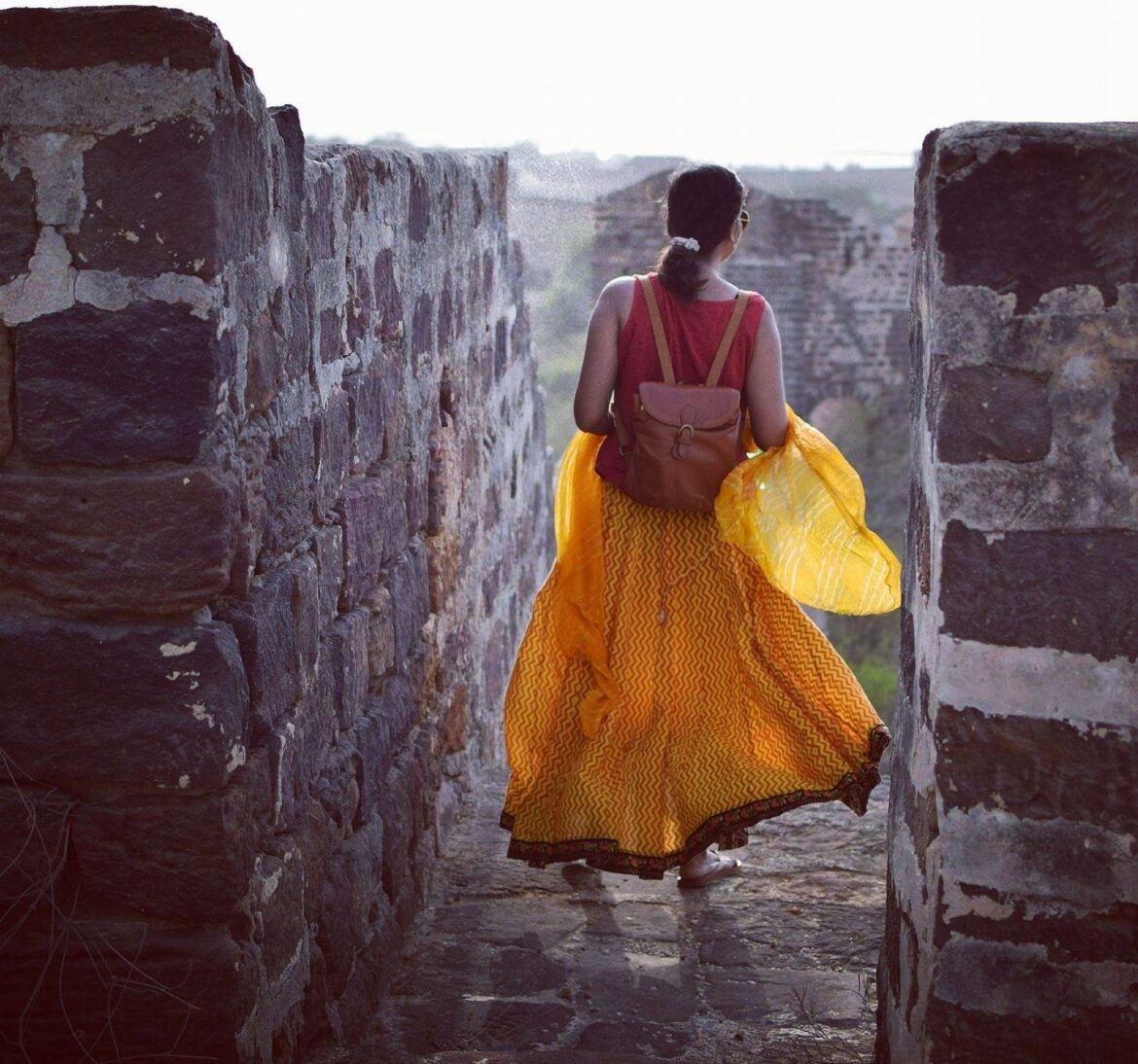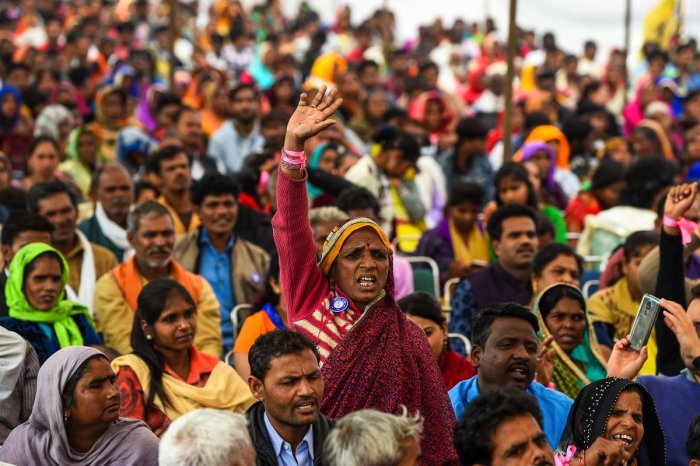The Womb Team spoke to Ms. Prachi Mehta, who is an internationally accredited Mediator and is the Founder of TAG – the ADR Group, a venture which provides mediation services to clients. Prachi started her career 15 years ago in New York ad a lawyer and became a dispute resolution expert. After graduating from St. Stephen’s College, Delhi she studied law from University of Delhi and the New York University. She is certified by Harvard Law School for mediating complex disputes. She has also worked as a visiting Researcher at the Stanford Law School to research and develop mechanisms for Indian industries and companies to effectively use mediation for resolution of disputes. Ms. Avani Bansal spoke to Ms. Prachi Mehta about her experiences with Mediation, how couples involved in family matters can approach Mediation before court based litigation. She also spoke to her about Prachi’s career trajectory and interesting experiences she had along the way. Join us for this riveting conversation. Do subscribe to our channel for more videos.
lawyer
Soul Searching – Are You Looking For Your Destiny In The Right Places?
(My Journey From Being A Lawyer To A Tour Leader)
By Richa Shandilya
Everyone has been made for some particular work and the desire for that work has been put in every heart.
– Rumi
In 2017, I quit my job as a lawyer and decided to be a Tour Leader, much to the surprise of my friends and family. Most of them thought that just because I got bored with my monotonous life, I was trying to be different. What wasn’t clear to them then, and even perhaps me, was – what exactly made me switch between careers, especially those which are very different from each other – from law to travel.
So, here I am, sharing my views on what made me switch my profession. This piece is motivated by the inner peace I am finding in doing this job, in the hope that it may resonate with some of you and propel you on your own path of inner peace.
I struggled for 28 years to find my inner calling, something that would fulfill my soul. At last, with some luck, I found it. It is travelling! Travelling has excited me as long as I remember. Travelling is a generic term and it involves many things. Every person has a different purpose behind pursuing travelling. For me, travelling is all about the thrill of journeys, meeting new people, understanding their perspective and exploring the world which is outside the box of my routine thinking process.
Growing up in India, I felt the societal pressure to act in a manner where I do not break the norm of the society and try to ‘fit in’. I tried to convince myself that, travelling is the new trending activity which may be difficult to reach for everyone, and it was this initial perception of ‘being difficult’ that got me excited.

I do think my childhood had a lot to do with what I am right now and my fascination with travelling. My father had a transferable job, and because of it I got the taste of travelling. Visiting places, which were very different from one another, gave me an exposure to different people, cultures, habits and landscapes. However the challenges that came with making new friends each time we changed the city came with mixed feelings.
My first experience of travelling in childhood was when we had to shift to a small town in Uttar Pradesh from my home town – Patna. I was very excited because before that I had never travelled anywhere else outside Patna. As a child, the whole prospect of relocating to a new life, excited me beyond bounds.
I was only 10 years old at the time and the whole excitement of travelling in train and going to a place where I knew nothing, never scared me. So it started, the thirst of travelling in me, and with each journey the thirst only increased and became more and more addictive with time. I changed 9 schools and travelled to 10 different states in India till I was 18 years old. I didn’t want to stop there. I wanted to travel more but I was in a stage where I had to choose my career and I still don’t’ know why – I chose Law. I don’t regret my decision to pursue law, because studying law has strengthened my confidence. However, the entire time that I was studying law and considering my career options, I always had a nagging feeling that I want to travel, undertake more journeys, and have stories to tell. But I had no money to do that. I finished my degree and started working as a lawyer. Money started coming in but left me with no time to travel.
So, the whole vicious cycle of trying to attain work-life balance, made me vulnerable and led to frustration. Everyday, going to work became a task, and justifying for myself the reason I was pursuing law, became increasingly difficult. But, you also need money to sustain your life and that’s how I landed being a Tour Leader for a world renowned tour company in India.
My journey of being a tour guide from a lawyer has been very interesting so far. I got to know, so many things about myself, which I would not have understood otherwise. This is because that’s what my soul was seeking, i.e. to continue my childhood fascination of taking different journeys, interacting with different personalities to understand the broader perspective of life.
In this series, from now on, I will be sharing with all of you my different experiences of my travels and share some stories along with some tips and techniques helping you undertake your own journeys. Perhaps travelling as a career us not what a lot of parents want for their kids unlike their dreams for their children to become a judge, or a top notch lawyer or crack UPSC. But it may open windows in the lives of many Indian women like me, who if given half a chance, would love to travel and make a career out of it.
I am not quite a writer but, my purpose of starting series is to inspire Indian women out there, who have not been able to explore their desires, because of various reasons and urge them to rethink, about their lives and motivate them to pursue their destinies. Don’t be caught in a dilemma of thinking that you are being selfish, if you pursue your dreams. We women, can bring a bigger change in society, but it can only be done, when we explore our-self, move out of our comfort zone, see what’s out there and then choose – who we want to be. As we change the world, we change ourselves.
(Richa Shandilya is a tour leader who has also assisted government tours organized by Ministry of Foreign Affairs)
Shalini is into prostitution – she has a kid who she needs to feed, and she could not think of any other way to survive. The trouble is that in spite of the fact that she is confident, has learnt to survive, she still finds herself at the losing end, when it comes to negotiating for her payment.
Dholak is an auto-driver. She is the only child of her parents. So, when her father fell sick, she had to rise to be the only bread-earner for her family. She took out her father’s auto-rickshaw and went to town for the first time, wearing a proper uniform. Several glances and pithy comments later – she now knows that she can survive, but even years later, she still finds it difficult to cut through the hesitation that many men feel in getting in her auto, even at peak traffic hours.
Sunaina is a law graduate who has always felt strongly about the rights of tribal and adivasis. She went to work with a local Human Rights’ Organization, that had been working for decades for the advocacy of tribal’ rights. When she saw the atrocities first-hand, and nature of state suppression, she felt herself too weak to bring about a change, all by herself. She persevered though and fought several cases, representing the tribal against big corporate lobbies.
Each of these women have given the best fight possible, without succumbing to their circumstances, and without feeling like a victim. Yet, the common thread that comes across these stories and similar stories from across India is the lack of ‘systemic measures’ to help ameliorate their situation. Any suppressed group or community needs systemic interventions by the state and the government, at multiple levels, if we are to see any significant leaps. Individual stories are also a reflection of their collective status, which unless women’s voices are mainstreamed, will be hard to act upon. Women in India need to look at the example set by those belonging to scheduled castes and scheduled tribes. Until a few decades earlier, the members of the SC and ST did not have any collective political voice in India, leading to their neglect and marginalisation by all political parties. It is only when their voices and issues were mainstreamed through political organisation, that a slew of reforms ushered in. We are witnessing the same today with the farmers’ organising themselves. Women too, and all those serious about women’s rights, need to find ways to bring women across India together, and to ensure that women are obsessed about their political status, not just their married/unmarried status.
Given the historical discrimination that women have faced, to think that women fighting all by themselves as individuals is sufficient to empower them, is living in a fool’s paradise. World-over, only countries that have taken systemic reforms have been able to show any significant, measurable development in women’s status. For e.g. Rwanda has the highest percentage of women in the Parliament – 61.3 %. This success rate can only be understood by looking at the policy and legal reforms that Rwanda took, most importantly reservation of seats for women in Parliament, that helped it turn around from the dismal figure of 18% women representation in Parliament in 1990 to the current figures. All other countries which have managed to strengthen women’s political voices such as Cuba, Bolivia, Mexico, apart from the Nordic countries, have undertaken a spree of reforms for women empowerment and equal political representation.
When we look around India of today, one cannot help but feel the desperation of women, irrespective of which category, class, or socio-economic status they come from.
Women uprisings or collective energy which was witnessed during the Shaheen Bagh movement and now of the female farmers in the farmers’ movement has given rise to an undercurrent that needs to be channelised for strengthening women’s voices in India. This is perhaps palpable by the current government which is ensuring that young and old women leaders, who speak up, have to pay a price for the same – the many examples include that of Ishrat Jahan, SafooraZargar, DevanganaKalita and Natasha Narwal, Sudha Bhardwaj and HidmeMarkam.
Women have nowhere to go but towards laying out their own destiny in the broader scheme of things in this country. This country also belongs to them, but it is time that women, keeping the challenges of intersectionality debate in mind, still come together and speak up for a cause that unites them all – mainstreaming their voices in politics. Because personal is political.





